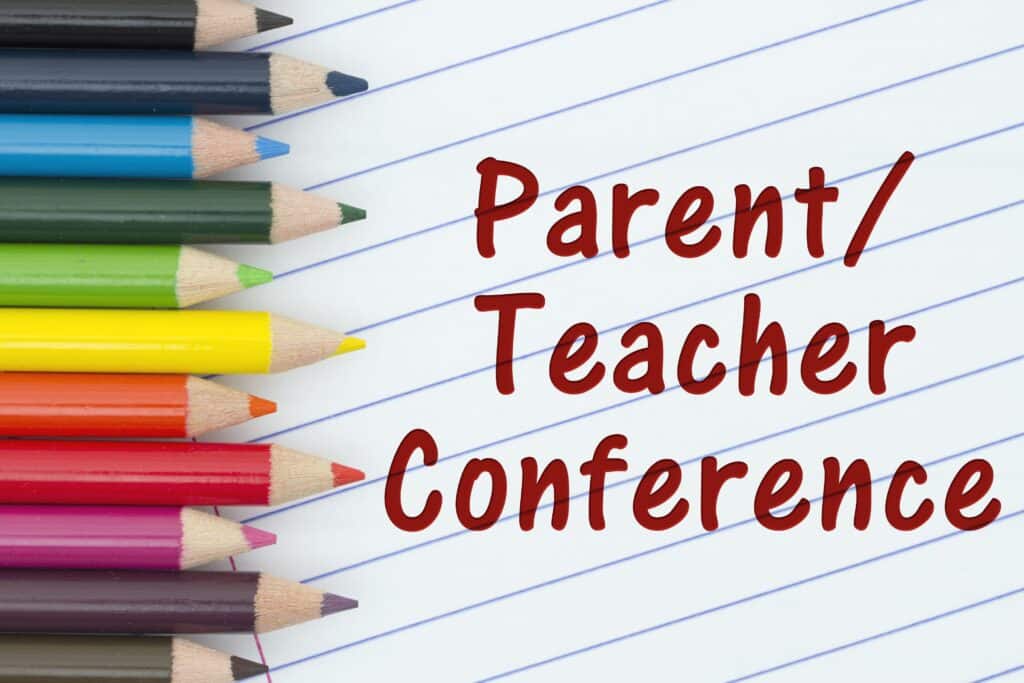The teacher prep programs of today are training new teachers more thoroughly than ever before. Even so, there are so many aspects of teaching that truly can’t be learned in a prep program. So much of what teachers take on has to be learned through on-the-job training. Perhaps one of the most intimidating tasks for new teachers is the first parent-teacher conference. Even experienced teachers can benefit from a set format and some helpful tips for a successful parent-teacher conference. Here are some ideas to incorporate:
Be Proactive
First, you may have to be persistent to confirm the parent-teacher conference appointment. Some children may intentionally or unintentionally misplace the notice about the meeting. It is also a good idea to confirm the appointment by phone the day before as well as send a reminder home with the appointment date and time. It may be necessary to offer alternative times for the conference besides the ones set aside by the school or district. If all else fails, offer to have a phone conference with the parents.
Start and End With Positivity
Set the right tone by being very welcoming. Greet the parents at the door, shake hands, and show them around the classroom. Ideally, you could have this meeting without the child present. If the student is with them, it is good to have some activity ready for them to do while you meet with the parents. It is always the best policy to start and end on a positive note. There is always something you can think of that is positive to say even about the most challenging students.
For the student with difficult behavior, maybe you can discuss their vibrant personality or advanced vocabulary. For the student that struggles academically, you can discuss their sweet temperament or interpersonal skills. End the meeting by revisiting and rewording the positive remarks discussed at the beginning.
Plan Ahead and Be Prepared
Take the time to review and make notes on the students’ academic performance and behavior. It is helpful to print out some assessment results. It would also be appropriate to have some student work samples ready to discuss, both strong examples and others that may indicate areas needing improvement. Try your best to anticipate parents’ questions and concerns.
Be Sensitive but Detailed With Negative Info
One of the most difficult things to grow accustomed to as an educator is giving negative news to parents regarding their children. It is always best to remember that sugar-coating the information helps no one. It’s best to be direct and say what needs to be said, while remembering to be sensitive to how the parents may receive it. It is never easy to hear negative information about one’s own children. It is good to keep in mind how you would feel as a parent on the receiving end of some negative information about your own child.
Create a Plan
Whether you are delivering good news, bad news, or most likely, a combination of both, have a plan ready to share with the parents. If there are behavioral concerns, have a plan for school ready to present and suggestions for home. If there are academic concerns, have ideas and materials ready for parents to use at home to support the student.
Don’t Tolerate Abuse
Hopefully, most of the time this will be a non-issue. However, at some point in an educator’s career, they will most likely have to deal with an angry and unreasonable parent. The best thing to do is to end the meeting if this occurs. You do not have to and should not tolerate abuse.
If a conference gets to this point, it is best to refrain from engaging; end the meeting, and suggest they schedule a time to meet with you and the principal. Be sure to speak to your administrator immediately so they know about the issue and come up with a plan to de-escalate the situation as soon as possible.
Remain Open for Communication
Make sure the parents know that parent-teacher conferences are not the only time they can meet with you. Make sure they know they can call anytime or reach you by email and that you are open to meeting with them whenever they have a concern.
Offer Student-Led Conferences
For a totally different approach, you can conduct conferences where students lead and take responsibility for their work. This would require some prep work beforehand with the student. It may also work better with older students than with primary students, but it’s a great way for students to get involved and to take ownership of their work.
Parent involvement is so critically important for student success. So even though parent-teacher conferences can be a challenging task at times, there are ways to make them more manageable. By implementing some of these ideas, your parent-teacher conferences can be productive and highly successful.
Educators never stop learning; check out our available graduate degree programs to hone your skills and promote lifelong learning and academic excellence.




